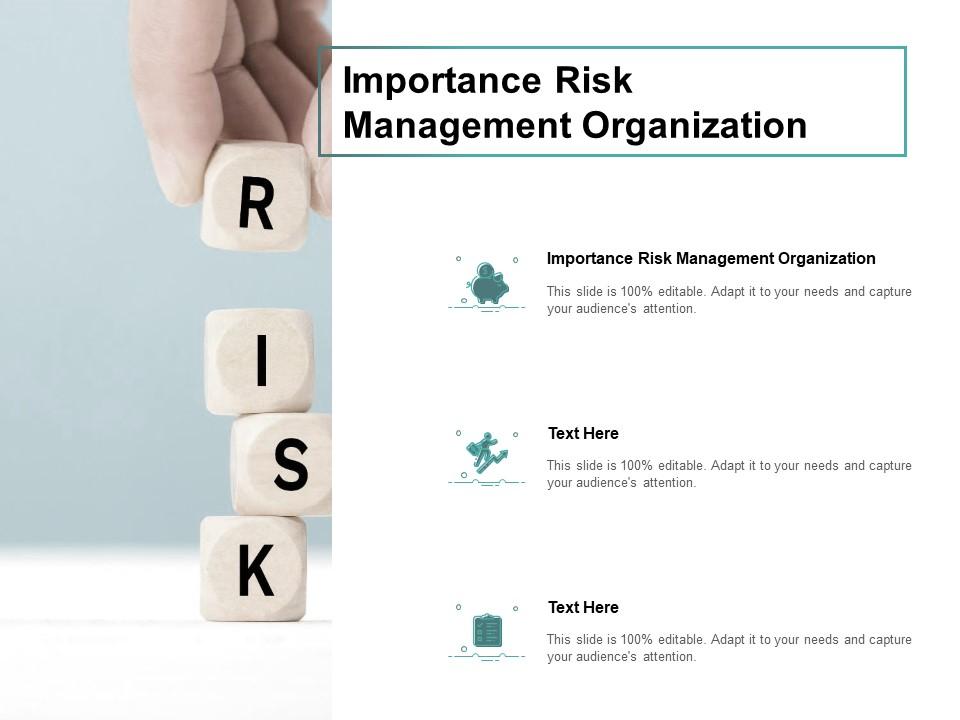The Long-Term Importance of Risk Management in Building Market Advantage
The Long-Term Importance of Risk Management in Building Market Advantage
Blog Article
The Significance of Comprehending the Importance of Risk Management in Different Industries

The Core Idea of Risk Management and Its Function
Risk Management, the foundation of many markets, hinges on the identification, examination, and reduction of uncertainties in an organization atmosphere. By correctly recognizing potential threats, businesses can establish strategies to either prevent these risks from happening or decrease their impact. Once threats have actually been identified and examined, the mitigation procedure entails developing approaches to decrease their possible influence.
Advantages of Executing Risk Management in Business Operations

Introducing the Function of Risk Management in Different Industries
While every industry faces its distinct set of risks, the execution of Risk Management techniques remains an usual in their pursuit of sustainability and development. In the health care industry, Risk Management involves making certain patient safety and security and data protection, while in money, it involves mitigating financial investment threats and guaranteeing regulative compliance (importance of risk management). Construction business concentrate on employee safety, project delays, and budget plan overruns. In the technology sector, business mitigate cybersecurity hazards and innovation obsolescence. Eventually, the function of Risk Management throughout sectors is to determine, assess, and mitigate threats. It is an essential component of tactical preparation, allowing organizations to safeguard their possessions, make best use of chances, and accomplish their goals.
Real-life Study Showing Successful Risk Management
To recognize the value of Risk Management in these many sectors, one can want to a number of real-life circumstances that highlight the successful application of these measures. In the power industry, British Petroleum established Risk mitigation plans post the 2010 Gulf of Mexico oil spill. They executed far better safety and security treatments and stricter regulations which dramatically lowered further crashes. In a similar way, in money, Goldman Sachs efficiently navigated the 2008 financial look here crisis by determining potential mortgage-backed safety and securities risks early. Finally, Toyota, publish the 2011 earthquake in Japan, revised its supply chain Management to reduce interruption threats. These cases show how markets, gaining from situations, efficiently applied Risk Management methods to minimize future risks.
Future Trends and Advancements in Risk Management Strategies
Cybersecurity, when an outer problem, has catapulted to the leading edge of Risk Management, with approaches concentrating on prevention, discovery, and feedback. The combination of ESG (Environmental, Social, Governance) factors into Risk Management is another growing trend, reflecting the boosting acknowledgment of the function that social and ecological threats play in business sustainability. Thus, the future of Risk Management exists in the blend of sophisticated innovation, ingenious techniques, and an all natural approach.
Final thought
In verdict, understanding the importance of Risk Management throughout a range of markets is critical for their longevity and prosperity. Customized approaches can help reduce prospective webpage dangers, protect properties, and foster stakeholder depend on. Additionally, proactive decision-making aids in governing compliance and optimizes source use. Inevitably, effective Risk Management contributes to extra resistant and sustainable services, highlighting the value of this method in today's very affordable and vibrant service setting.
While every market faces check this its distinct set of dangers, the application of Risk Management strategies remains a common in their quest of sustainability and growth. In the health care market, Risk Management involves making certain individual security and information protection, while in finance, it involves mitigating investment dangers and guaranteeing regulatory conformity. Inevitably, the role of Risk Management throughout industries is to identify, evaluate, and reduce threats. These instances demonstrate just how markets, discovering from crises, successfully applied Risk Management strategies to minimize future risks.

Report this page